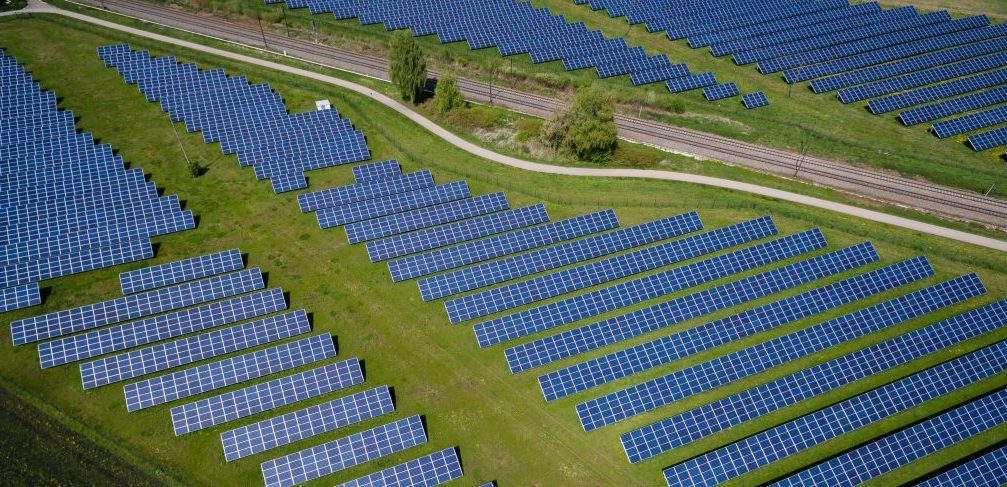The transition from fossil fuel is an opportunity for Texas

Day One of the Joe Biden administration is only a few weeks away and so are a series of executive orders aimed at kick-starting the new president’s ambitious clean energy agenda as part of his promise to forcefully combat climate change.
With the oil and gas industry making up about 30 percent of the Texas economy and more than a third of Houston’s GDP, how the Lone Star State responds to these measures — and to proposed climate legislation — will invariably impact our future.
That impact will not only be felt economically. Intensifying storms due to climate change threaten millions of lives in the region and our city’s very existence.
Judging by past actions, the political response will be cynically simple: Texas Democrats will drag their feet and talk about the complexity of the energy industry, while Republicans will pummel their opponents and label any regulation as a job killer.
But attitudes are changing — among Texans and the oil industry itself. We urge lawmakers and state leaders to see the transition away from fossil fuels not as an obstacle or even a challenge but as an opportunity.
Among what are expected to be Biden’s initial wave of executive orders are limits on methane emissions for oil and gas operations, requiring public companies to disclose climate risks and greenhouse gas emissions, consideration of greenhouse gas emissions and climate change on federal permitting decisions, new fuel economy and energy efficiency standards, and a freeze on new oil and gas leasing in federal lands and waters, including the Gulf of Mexico.
The only thing radical about Biden’s agenda is the same thing that’s always been astounding about America’s stance on climate change among advanced nations: that we have been content with doing so little for so long — or worse, moving backward as President Donald Trump took the United States out of the Paris climate accord and worked to roll back more than 100 environmental rules.
Biden’s climate strategy is seen by many activists as not doing enough, with objections to his support of nuclear power, hydroelectric dams, and carbon capture and storage as a giveaway to industry. While an argument can be made that a more aggressive response is needed, all viable options must be on the table and any real change will require industry support.
On the other side, there are still some stubborn holdouts, but just as denial that the climate was changing at all morphed into a more narrow denial that it was caused by human activity, the debate is now shifting to how quickly we must act and what are reasonable economic sacrifices.
A recent University of Houston study found that more than 80 percent of Texans believe in climate change and most said they are willing to pay more for power produced in a more environmentally conscious way, whether it’s from renewable energy sources or from natural gas produced without venting or flaring.
Demand for oil will recover after the pandemic abates, but major oil companies recognize that the future is not fossil fuels and that a large-scale transition to clean energy is only a matter of time, as pressure from the government and the private sector intensifies. Investment firms such as BlackRock and Goldman Sachs have announced a move away from fossil fuels and Bank of America recently joined other major U.S. banks in refusing to finance oil and gas exploration in the Arctic.
Fortunately, Texas is already farther along than many realize. Nationally, the state ranks first in wind power and third in battery storage capacity. The state is fifth in solar, but the sector is seeing explosive growth, with a $1.6 billion solar farm — the country’s largest — opening outside of Dallas in 2023. Texas is also growing its footprint in the electric vehicle market, with Tesla building a manufacturing plant near Austin.
There will undoubtedly be economic pain as some jobs go away and others take their place, and the state must be ready to offer support through training programs and education for displaced workers. But many in our workforce, especially here in Houston, are already positioned for the future.
“Nowhere else in the world is there such a concentration of scientists, engineers, and economists who understand energy systems and can affect the necessary change,” Bobby Tudor, head of the Greater Houston Partnership, said.
For too long, Texas being business-friendly has been a euphemism for growth at the expense of the environment and public health. If the state is a full and willing participant in the transition away from fossil fuels, everyone can share in the benefits, and the energy capital of the world can be the leader in helping save the planet.
By The Editorial Board, Houston Chronicle
The Editorial Board is made up of opinion journalists with wide-ranging expertise whose consensus opinions and endorsements represent the voice of the institution – defined as the board members, their editor and the publisher. The board is separate from the newsroom and other sections of the paper.

NEWS
Hide Full Index
Show Full Index
View All News